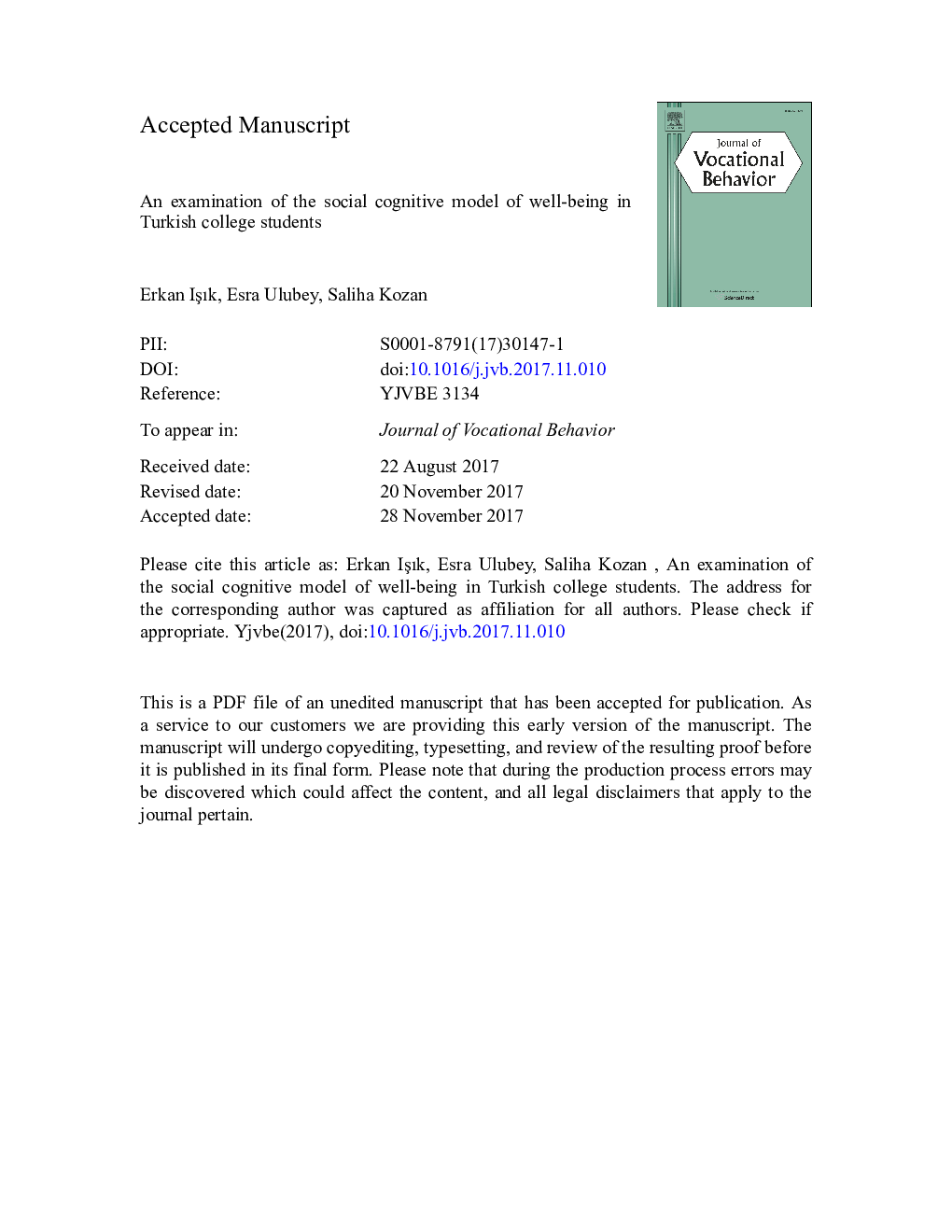| Article ID | Journal | Published Year | Pages | File Type |
|---|---|---|---|---|
| 7247271 | Journal of Vocational Behavior | 2018 | 45 Pages |
Abstract
With the purpose of contributing to the growing international research on social cognitive career theory (SCCT), this study examined Lent's (2004) social cognitive model of well-being in a sample of Turkish college students. Three hundred and three students completed a battery of questionnaires assessing trait positive affect, overall life satisfaction and domain-specific support, self-efficacy, outcome expectations, goal progress, and satisfaction. The results of a structural equation model revealed that the well-being model fit the data well and accounted for 66%, 61%, and 45% of the variance in academic goal progress, academic satisfaction, and overall life satisfaction, respectively. Furthermore, all hypothesized relationships were supported except for two paths (i.e., outcome expectations â goal progress, and positive affectivity â academic satisfaction). These findings extend previous research on the international applicability of social cognitive model of well-being and highlight the potential use of environmental support, self-efficacy beliefs and outcome expectations in the development of goal progress, academic and life satisfaction in a cultural context which is a blend of Eastern and Western cultural perspectives.
Related Topics
Social Sciences and Humanities
Business, Management and Accounting
Marketing
Authors
Erkan IÅık, Esra Ulubey, Saliha Kozan,
